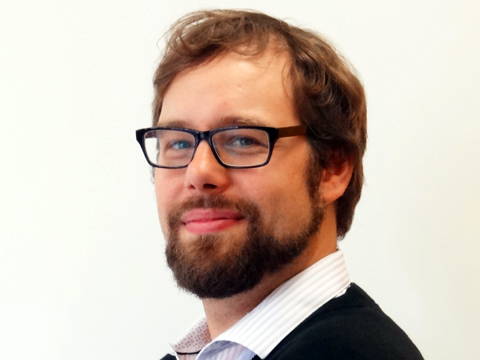Contact
Ruhr-Universität Bochum
Fakultät für Geschichtswissenschaft
Historisches Institut
Professur Geschichte Nordamerikas
Universitätsstraße 150
44780 Bochum
Room: GA 5/60
Tel. +49-234-32-24667
Fax. +49-234-32-14083
gna[at]rub.de
Secretariat
Victoria Junkernheinrich
Room: GA 4/157
Tel. +49-234-32-28635
Fax. +49-234-32-14083
bereichssekretariat5[at]rub.de
Information on opening hours
Dr. Darius Harwardt

- E-Mail: Darius.Harwardt[at]rub.de
Curriculum Vitae
- Since May 2019: Occupied at Referat Forschungsförderung in der Förderberatung und dem EU-Projektmanagement der TU Dortmund.
- Since 2015: Research Associate at the University of Essen to research the history of cooperation between sports science, labor science and corporations in the Weimar Republic.
- Since 2014: Research assistant at the Ruhr-University Bochum as well as part of the organizing committee of the Historisches Doktorandenkollegg Ruhr of the Ruhr-University Bochum and the University of Essen.
- 2012-2013: Research assistant at the Institute of Documentation and Research of the Social Insurance in Bochum (sv:dok), involved in the research of the provisions of war victims in Germany and the history of social insurance and law in Germany.
- 2012: Research assistant at the Department for History of the Ruhr-University Bochum within a research project to investigate the Nazi past of the Federal Office for the Protection of the Constitution (Bundesamt für Verfassungsschutz).
- Since 2011: PhD Candidate at the Department for History/North American History at the Ruhr-University Bochum.
- 2004-2011: Studies of history, biology and geography at the Ruhr-University Bochum, degree: Master of Education.
Research Interests
- Images of the United States in Germany
- History of right-wing extremism and nationalism in Germany
- History of ideology, political ideas and media in Europe and the United States after 1945
- Social history of Germany
PhD Project
Imaginations of America Within Networks of Right-Wing Intellectuals
After the Second World
War, not only the Nazi regime was defeated, but also its
ideology was discredited – in collaboration with anti-liberal
conservatism
that was considered a possible
forerunner of National Socialism. By exercising a Re-Education
policy, the USA tried to implement values like democracy,
liberalism and capitalism within German society. Meanwhile the
political Right in Germany tried to reorganize itself and to
modernize its ideology within small circles and networks of
intellectuals. In the context of these attempts, right-wing
intellectuals also utilized specific images of America to
construct their own
political identity and to establish an ideological border to the
USA. They used old images of America which
were already popular
before and during the Weimar Republic:
America was described as bare of culture, superficial,
materialistic and morally degenerated. The Germans – they stated
– should not ground their national identity on the values of
their occupying force but find its own
way again. These enemy images however competed with the fear of
Communism and Soviet
influence. Many right-wing intellectuals therefore had to
construct their political ideology within an area
of conflict of two competing power blocs. This often led to
controversies.
In the context of the
public dispute about the NATO Double-Track Decision and the
peace movement in Germany, these questions grew more acute: The
concept of a “Third Way”, a neutral and reunified Germany,
seemed to be more popular at this time than ever before and
images of America were dominating the public discourse.
Right-wing intellectual networks tried to utilize this dispute
but were even more divided because of different enemy images.
They therefore either tried to develop a political position
somewhere between the USA and Soviet
Union – or had to choose
the “lesser evil”. After the
end of the Cold War,
a growing anti-Americanism
seemed to cover some fissures within different right-wing
intellectual networks. But after 9/11 at the latest, they had to
position themselves again between the West
and the Islamic World and were therefore searching
for a third
position.
The research project
explores the imaginations of the United States of America within
right-wing intellectual networks, their change within history and
the competition with other enemy images. It
focuses on
debates around certain conflicts, such as the NATO Double-Track
Decision, the Gulf War or 9/11, but also follows the significance
of images of America for the German Vergangenheitsbewältigung
and the construction of a national identity. In all these
debates and already in the early years of the
Federal
Republic the United
States provided a continuous arsenal of socially constructed and
culturally conveyed images and concepts, addressing subliminal
resentments and thus having a potentially far-reaching effect.
Different images of America thus also function as a probe, to
analyse central elements of the ideology and political culture
of different right-wing intellectual networks in the Federal
Republic of Germany. This perspective
is complemented by a structural analysis of these networks,
circles and the leading protagonist, which are all together often
summarized under the controversial terminus of a “New Right”. An
intellectual history tries to distinguish this definition. The
considerably different use of positive or negative images of
America sheds light on differences, historical developments and
possible connections to public discourses.
Publications
- "Die Gegenwehr muss organisiert werden - und zwar vor allem auch geistig". Armin Mohler und Caspar von Schrenck-Notzing als Rechstintellektuelle in der frühen Bundesrepublik, in: Goering, Timothy D. [Hg.]: Ideengeschichte heute. Traditionen und Perspektiven, Bielefeld 2017, p. 119-147.
- Sozialrecht und NS-Vergangenheit: Zentrale Rechtsgebiete, in: Justizministerium des Landes Nordrhein-Westfalen: Sozialgerichtsbarkeit und NS-Vergangenheit, Geldern 2016, p. 107-210.
- Tagungsbericht (with Kathrin Muschalik and Stephanie Nowitzki): Military, Security, and Use of Force in U.S. History. Annual Conference of the Historians in the Deutsche Gesellschaft für Amerikastudien (DGFA)/German Association for American Studies, 21.02.2014-23.02.2014 Tutzing, in: H-Soz-Kult, 19.07.2015, http://www.hsozkult.de/conferencereport/id/tagungsberichte-5464.
